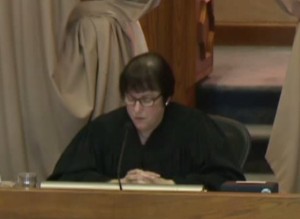
Guest column: Sky NOT falling on overtime for service advisers, auto body estimators after Navarro
By onBusiness Practices | Legal
Editor’s note: Several sites, including Repairer Drive News, reported on the recent Ninth Circuit rejection of an overtime exemption claimed under the Fair Labor Standards Act by a California car dealership for its service advisers. Cory J. King, a partner in the San Diego, Calif. office of Fine, Boggs & Perkins LLP and probably one of the few attorneys in the country specializing in collision repair workplace law, has offered this counterpoint to explain why the ruling probably won’t impact many Ninth Circuit repairers and dealerships. The analysis is meant for informational purposes only; it is not intended as legal advice.
On March 24, 2015, the United States Court of Appeals for the Ninth Circuit (which covers California) held in Navarro v. Encino Motorcars LLC, that a California automobile dealership’s service advisers do not fall within the FLSA Section 13(b)(10)(A) overtime exemption. Since then automotive industry news sources have been blowing up with technically accurate, but misguided, articles declaring that “Dealership service advisers must be paid overtime.” This article is designed to quell the hysteria created by those articles and help automotive repairers understand that the Navarro case really is (or at least should be) much ado about nothing.
A bit of legal background
The federal Fair Labor Standards Act contains two primary Sections that have been used to exempt service advisers from the payment of overtime.
The first is found in Section 7(i), which exempts from the overtime requirements “any employee of a retail or service establishment … if (1) the regular rate of pay of such employee is in excess of one and one-half times the minimum hourly rate applicable … under section 6 [minimum wage], and (2) more than half his compensation for a representative period (not less than one month) represents commissions on goods or services.” The “7(i) exemption” applies to all retail establishments, including dealerships and independent mechanical or collision repair shops.
The second is found in Section 13(b)(10)(A), which provides an exemption from overtime for “any salesman, partsman or mechanic primarily engaged in selling or servicing automobiles … if he is employed by a nonmanufacturing establishment primarily engaged in the business of selling such vehicles or implements to the ultimate purchaser.” It is important to note this last phrase, as the 13(b)(10)(A) exemption only applies to dealership employees.
For years the U.S. Department of Labor enforced the 13(b)(10)(A) exemption as NOT applying to service advisers; however, after reviewing several U.S. Circuit Court opinions that did apply the exemption to service advisers, the DOL reversed its enforcement position in 1987, then recently reversed its position again. Nevertheless, several courts, both federal and state, have held that the Section 13(b)(10)(A) exemption does apply to service advisers, thus the 9th Circuit’s decision in Navarro creates a conflict that may ultimately result in the issue getting decided by the U.S. Supreme Court.
In addition to the federal FLSA, automotive repairers must also pay close attention to their state laws regarding overtime exemptions. In particular, California repairers must comply with much more restrictive industry-specific Wage Orders which set forth California’s laws regarding overtime exemptions. Specifically, California Wage Order No. 7 (Mercantile) applies to automobile dealerships, and includes a commissioned sales exemption on par with the federal 7(i) exemption; and Wage Order No. 9 (Transportation) applies to independent mechanical and collision repairers, but does not include commissioned sales exemption language.
This difference is very important because, for example, a collision repair estimator employed by a dealership may qualify for the commissioned sales exemption, but the estimator at the non-dealership shop across the street (doing exactly the same work) will not have that exemption available.
The significance of the Navarro case — if there is any
The significance, if any, of the Navarro case for an automotive repair shop depends on where the shop is located and how they have been classifying/paying their service advisers. Quite frankly, the Navarro case only has significance for a very narrow group of repairers — dealerships that are (1) located within the 9th Circuit (Alaska, Arizona, California, Hawaii, Idaho, Montana, Nevada, Oregon, and Washington); and (2) that rely exclusively on the 13(b)(10)(A) exemption to classify their service advisers as exempt from overtime.
Considering that most dealerships pay their service advisers using some sort of commission or flat-rate pay plan specifically designed to qualify the service adviser for the 7(i) commissioned sales exemption (presuming the service adviser meets minimum performance standards to satisfy the exemption), the Navarro decision likely affects very few, if any, employers. And as for California dealerships, since none of the Wage Orders include an exemption similar to the federal Section 13(b)(10)(A) exemption, the commissioned sales exemption is, and has been, the only overtime exemption California dealers should attempt to apply to service advisers.
This of course begs the question – if Mr. Navarro (a California dealership employee) was, as noted in the case, paid exclusively on commission (and thus presumably “commissioned exempt”), why did the 13(b)(10)(A) exemption even become an issue to give rise to the Navarro case? Perhaps he did not make enough to meet the “1.5 times minimum wage” requirement for the exemption, but unfortunately the Navarro case is silent as to any analysis or application of the commissioned sales exemption.
Guidance received from the Navarro case
The Navarro case, despite having no little or no practical application for automotive repairers who have utilized the 7(i) exemption appropriately, serves as a reminder that the industry must remain vigilant with regard to wage/hour compliance issues and to seek out competent legal advice before panicking over news reports. Here’s the bottom-line:
- Dealerships, even in California, can continue to treat their service advisers as exempt from overtime through reliance on the applicable 7(i) or commissioned sales exemption as long as the requirements of the exemption are met. Dealerships should ensure that each service adviser’s earnings exceed 1.5 times the minimum wage and that more than half of the service adviser’s compensation represents commissions.Moreover, to maximize compliance arguments, dealerships should make sure that pay plans and job descriptions make clear that service advisers are expected to try to sell something to every customer, whether or not the customer is a warranty customer (e.g., paint repair, dent repair, windshield chip repair, tires, wiper blades, etc.). Dealerships also might consider paying “customer-pay” work at a higher commission rate than warranty or internal work in order to make sure that “customer-pay”-based commissions exceed warranty- and internal-pay-based commissions. Further, both pay plans and job descriptions should refer to service advisers as service salespersons and confirm their sales duties, and the dealership should make sure that it is enforcing the “sell-to-every-customer” rule;
- Non-dealership mechanical and collision repair shops outside California may follow the guidance provided to dealerships above regarding application of the 7(i) exemption;
- Non-dealership mechanical and collision repair shops within California MUST remember that Wage Order No. 9, which applies to their shops, does not include a commissioned sales exemption. Therefore, overtime considerations, including proper calculation of such overtime, should be taken into account in preparing pay plans for service advisers/writers and estimators in such shops.
- Before changing or implementing any pay plan, employers should seek legal advice from competent employment legal counsel to determine whether the employee qualifies for an overtime exemption. Further, there are many legal nuances not addressed in this article that affect the pay plans of a service adviser or estimator and may lead to significant liability, especially in California (i.e., possible issues with non-productive time and paid rest periods). Thus, getting good legal advice is more important than ever.
If you would like additional information about these issues, please contact Cory J. King of Fine, Boggs  & Perkins LLP at 760-891-1240 or cking@employerlawyers.com. King has served for many years as the chairman of the national Collision Industry Conference Human Resources Committee and employment counsel for the California Autobody Association. His firm also fills that same role for the California New Car Dealers Association.
& Perkins LLP at 760-891-1240 or cking@employerlawyers.com. King has served for many years as the chairman of the national Collision Industry Conference Human Resources Committee and employment counsel for the California Autobody Association. His firm also fills that same role for the California New Car Dealers Association.
Images
Ninth Circuit Judge Susan Graber, who wrote the opinion in the case, makes an observation about Navarro v. Encino Motorcars during a hearing Feb. 11 to an attorney for Encino Motorcars in this video screenshot. (Screenshot from Ninth Circuit Court video on YouTube)
Collision repair employment law attorney Cory King is shown. (Provided by Cory King)
